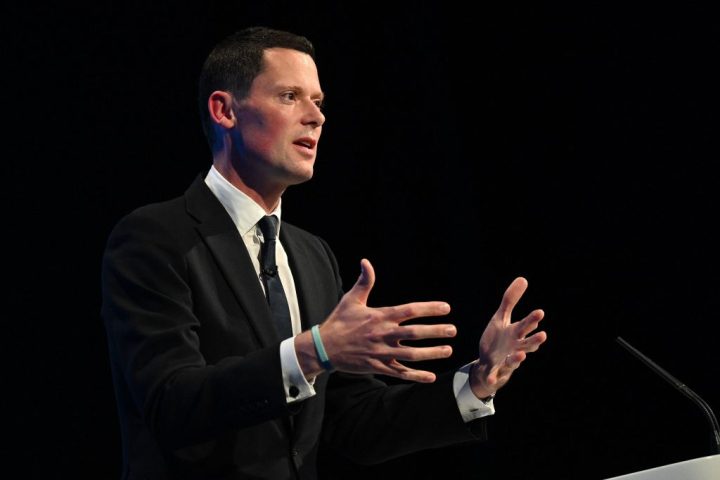Yesterday’s statement on prison reforms from the Justice Secretary Alex Chalk was very much one of those why-didn’t-you-see-this-coming affairs. Chalk has only been in the brief since April, but he has had more warning than the past fortnight that prison capacity was running out.
One of the problems Chalk has is that he is mopping up thirteen messy years for the Ministry of Justice
Yesterday he sought to reframe the story by arguing he had in fact seen it coming. He told MPs: ‘I have been candid from the moment I took on this role that our custodial estate is under pressure.’ But he tried to suggest that this was as much a Covid problem as it was anything else: saying it was the remand population which had seen the greatest increase in numbers because the government had decided not to do away with jury trials during lockdowns.
To deal with the capacity problem, he announced a number of different measures. Some of them he might have wanted to pursue had there not been a crisis, while others which appeared more panicked. There was ‘up to £400 million for more prison places’ and ‘urgent work’ which must conclude before the end of the year to identify new sites for the government to purchase for new prisons. An annual statement of prison capacity will be laid before parliament. Then there were the sentencing reforms, which Chalk would have been minded to go for anyway, albeit perhaps without the pressure which had led to yesterday’s statement.
Lower-level offenders will be more likely to avoid jail, while less serious offenders could also be moved out of prison onto licence up to 18 days before their automatic release date. This isn’t just to create capacity in the short-term, but to ensure that such prisoners had a lower chance of reoffending and adding to the prison population again.
Chalk said:
Let me put that last point in another way: prisons should not ruin the redeemable. It is clear that all too often the circumstances that lead to an initial offence are exacerbated by a short stint in prison, with offenders losing their homes, breaking contact with key support networks and, crucially, meeting others inside prison who steer them in the wrong direction. When they are released just a short time later, they all too often reoffend, fuelled by addiction or mental health issues that cannot possibly be addressed effectively in such a short space of time.
In short, prison doesn’t work. Or at least, a short time in prison doesn’t work.
He announced this alongside a promise to ensure that rapists and those convicted of equivalent sexual offences would serve ‘the entirety of the custodial term handed down to them by the courts’. This was to underline that the government wasn’t freeing rapists or letting them avoid jail altogether. Chalk added that ‘there had been inaccurate reports in the media, claiming that judges had been told not to send rapists to prison’. He said this was ‘untrue’ and that sentencing was a matter for the judiciary.
Labour’s Shabana Mahmood accused the government of ‘failing in the first duty of government, which is to keep our citizens safe’. She joked that the ‘first rule of rehabilitation is to acknowledge mistakes’ – something she said Chalk hadn’t done. The exchanges got rather political at this point, with Chalk accusing her of signing a letter trying to stop ‘a plane full of rapists and murderers’ from leaving the country.
Why didn’t Chalk get the chance to announce these reforms before the story hit the papers and became a crisis? It’s not as though the Commons has been rammed with legislation and announcements over the period he has been Justice Secretary.
One of the problems he has is that he is mopping up thirteen messy years for the Ministry of Justice. It has one of the highest ministerial turnovers in Whitehall, and the brief has swung from ministers who want to lock everyone up, to those who want to let them all out. No wonder sentencing policy has appeared incoherent.
The reason this department is particularly dysfunctional is largely that it isn’t politically salient, and so it is routinely neglected in spending reviews. But now it has become part of a narrative that the Tories might not be as tough on law and order as they’d like to claim, and part of an even wider one that large sections of public services just aren’t working. That means we can expect to hear a lot more from Chalk as he tries to show the government is in control.







Comments